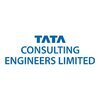Filter interviews by
Vaaman Engineers Interview Questions and Answers
47 Interview questions
A forklift accident led to an LTI when an employee was struck while unloading materials, highlighting safety protocol gaps.
Incident occurred during a routine unloading operation.
A forklift operator failed to notice a pedestrian in the area.
The pedestrian sustained a leg injury, resulting in lost time.
Investigation revealed inadequate training for forklift operators.
Implemented new safety protocols and training ses...
Hot work refers to operations that generate heat or sparks, requiring specific safety precautions to prevent fires and injuries.
Hot work includes activities like welding, cutting, grinding, and soldering.
Ensure a fire watch is present during hot work operations.
Remove flammable materials from the work area or cover them with fire-retardant tarps.
Use appropriate personal protective equipment (PPE) such as gloves, g...
A belt drive is a mechanical system that transmits power between shafts using flexible belts.
Consists of pulleys and a belt that connects them.
Commonly used in vehicles for power transmission (e.g., serpentine belts).
Can be classified into open and crossed belt drives.
Used in machinery like conveyor systems and lathes.
Advantages include smooth operation and reduced vibration.
There are several types of gearboxes, each designed for specific applications and performance requirements.
1. Manual Gearbox: Common in cars, allows driver to change gears manually.
2. Automatic Gearbox: Automatically changes gears based on speed and load, used in most modern vehicles.
3. Continuously Variable Transmission (CVT): Provides seamless acceleration without distinct gear shifts, found in some hybrids.
4. D...
To solve a breakdown, identify the cause, analyze the situation, implement solutions, and monitor results for effectiveness.
Identify the root cause: Use tools like the 5 Whys or Fishbone Diagram to pinpoint the issue.
Analyze the situation: Gather data on the breakdown, such as operating conditions and maintenance history.
Implement solutions: Develop a plan to address the cause, such as repairing equipment or chang...
Preventive maintenance is a proactive approach to maintaining equipment to prevent failures and extend its lifespan.
Involves regular inspections and servicing of equipment.
Examples include oil changes in vehicles and lubrication of machinery.
Helps identify potential issues before they lead to breakdowns.
Can reduce overall maintenance costs by avoiding major repairs.
Scheduled maintenance tasks can be based on time ...
Effective safety management in unionized workplaces requires collaboration, communication, and adherence to regulations.
Engage with union representatives to discuss safety concerns and policies.
Conduct regular safety training sessions that include union members.
Implement a safety committee that includes union representatives to ensure all voices are heard.
Utilize feedback from workers to improve safety protocols, ...
Achieving a zero-harm environment involves proactive safety measures, continuous training, and fostering a culture of accountability.
Implement regular safety training sessions to keep all employees updated on best practices.
Conduct routine safety audits to identify and mitigate potential hazards in the workplace.
Encourage open communication where employees can report unsafe conditions without fear of reprisal.
Util...
A DC valve is a type of valve that controls the flow of direct current (DC) electricity in a circuit.
DC valves are used to regulate the flow of DC current in various applications.
They can be either normally open or normally closed, allowing or blocking the flow of current respectively.
DC valves are commonly used in hydraulic systems, automotive applications, and industrial machinery.
Examples of DC valves include s...
Centrifugal pump works by converting mechanical energy from a motor into kinetic energy in the fluid being pumped.
Centrifugal force is created by the rotation of the pump impeller, which pushes the fluid towards the outer edges of the pump casing.
The kinetic energy of the fluid increases as it moves through the pump, creating pressure that forces the fluid out of the pump discharge.
Common applications of centrifug...
Vaaman Engineers Interview Experiences
60 interviews found
I appeared for an interview in Feb 2025.
(2 Questions)
- Q1. Your last work details
- Ans.
I worked as a Senior Accountant at XYZ Company for 5 years, managing financial records and preparing reports.
Managed financial records for the company
Prepared financial reports on a regular basis
Analyzed financial data to provide insights for decision-making
Collaborated with other departments to ensure accuracy of financial information
- Q2. Your personal details
Interview Preparation Tips
I appeared for an interview in Apr 2025, where I was asked the following questions.
- Q1. What are the primary functions and services provided by your company?
- Ans.
Our company provides innovative engineering solutions, focusing on efficiency, safety, and sustainability across various industries.
Design and development of engineering systems, such as HVAC and plumbing.
Maintenance and troubleshooting of machinery to ensure optimal performance.
Implementation of safety protocols to protect workers and equipment.
Collaboration with cross-functional teams to enhance project outcomes.
Sust...
- Q2. Does your company consider employee feedback?
- Ans.
Yes, our company values employee feedback and actively incorporates it into decision-making processes.
Regular surveys are conducted to gather employee opinions on workplace policies.
Feedback sessions are held quarterly, allowing employees to voice their concerns directly to management.
An anonymous suggestion box is available for employees to submit ideas or feedback at any time.
Recent changes in our safety protocols we...
Interview Preparation Tips
I applied via Company Website and was interviewed in Jun 2024. There was 1 interview round.
(3 Questions)
- Q1. Experience based questions . Basic shop floor related questions and managing the process.
- Q2. Am I ready to work hand on being as an executive too
- Ans.
Yes, I am ready to work hands-on as an executive and take on the responsibilities that come with it.
I have experience in leadership roles where I have successfully managed teams and projects.
I am confident in my decision-making abilities and can handle high-pressure situations effectively.
I am eager to take on new challenges and grow in my career by stepping into an executive role.
- Q3. Clear understanding of skills represented in resume
Interview Preparation Tips
Do not confuse the interviewee
Be prepare with your skills
I appeared for an interview in Jul 2024.
(2 Questions)
- Q1. Screen crusher maintenance work
- Q2. Conveyor belts maintenance work
I applied via Naukri.com and was interviewed in Mar 2024. There was 1 interview round.
(8 Questions)
- Q1. What is the meaning of pump?
- Ans.
A pump is a mechanical device used to move fluids from one place to another.
Pumps are commonly used in various industries such as water treatment, oil and gas, and manufacturing.
There are different types of pumps including centrifugal pumps, diaphragm pumps, and gear pumps.
Pumps can be powered by electricity, engines, or manual operation.
Examples of pumps include water pumps used in households, fuel pumps at gas statio...
- Q2. How does centrifugal pump work?
- Ans.
Centrifugal pump works by converting mechanical energy from a motor into kinetic energy in the fluid being pumped.
Centrifugal force is created by the rotation of the pump impeller, which pushes the fluid towards the outer edges of the pump casing.
The kinetic energy of the fluid increases as it moves through the pump, creating pressure that forces the fluid out of the pump discharge.
Common applications of centrifugal pu...
- Q3. Difference between pressure regulating valve and pressure reducing valve?
- Ans.
Pressure regulating valve maintains a constant pressure downstream, while pressure reducing valve reduces the pressure from a higher level to a lower level.
Pressure regulating valve maintains a constant pressure downstream by adjusting the flow rate through the valve.
Pressure reducing valve reduces the pressure from a higher level to a lower level, ensuring it stays within a specific range.
Pressure regulating valves ar...
- Q4. What is DC valve and how it's working?
- Ans.
A DC valve is a type of valve that controls the flow of direct current (DC) electricity in a circuit.
DC valves are used to regulate the flow of DC current in various applications.
They can be either normally open or normally closed, allowing or blocking the flow of current respectively.
DC valves are commonly used in hydraulic systems, automotive applications, and industrial machinery.
Examples of DC valves include soleno...
- Q5. What is Pascale law?
- Ans.
Pascal's law states that a change in pressure applied to an enclosed fluid is transmitted undiminished to all portions of the fluid and to the walls of its container.
Pressure applied to a confined fluid is transmitted equally in all directions.
The principle is used in hydraulic systems to generate mechanical force.
Example: Hydraulic car brakes work based on Pascal's law.
Example: Hydraulic lifts use Pascal's law to lift...
- Q6. What is pressure point of a gear?
- Ans.
Pressure point of a gear is the point where the maximum force is applied to transmit power.
Pressure point is where the teeth of two gears come into contact.
It is the point where the force is exerted to transmit power from one gear to another.
Proper lubrication and maintenance of pressure points are essential for smooth gear operation.
- Q7. What is module of a gear?
- Ans.
Module of a gear refers to the ratio of the pitch diameter to the number of teeth on the gear.
Module is a key parameter in gear design and is used to determine the size of the gear teeth.
It is calculated as the ratio of the pitch diameter to the number of teeth on the gear.
Common modules include 1, 1.5, 2, 2.5, etc.
Higher module values indicate larger gear teeth and vice versa.
- Q8. What lubricant oil is used in hydraulic system and what grade oil is suitable for in hydraulic?
- Ans.
The lubricant oil used in hydraulic systems is hydraulic oil, and the suitable grade depends on the specific requirements of the system.
Hydraulic oil is specifically designed for use in hydraulic systems to provide lubrication, cooling, and sealing.
The grade of hydraulic oil depends on factors such as operating temperature, pressure, and system design.
Common grades of hydraulic oil include ISO VG 32, ISO VG 46, and ISO...
Interview Preparation Tips
I appeared for an interview in Nov 2024, where I was asked the following questions.
- Q1. What is incorrect investigation & staffes of investigation.
- Ans.
Incorrect investigation refers to flawed methods in safety assessments, leading to inadequate conclusions and actions.
Lack of proper training: Investigators may not be trained in safety protocols, leading to oversight.
Inadequate data collection: Failing to gather all relevant evidence can skew results, e.g., not interviewing all witnesses.
Bias in analysis: Personal biases can affect the interpretation of data, such as ...
- Q2. Environment management system.
- Q3. What is Hot work and it's precautions.
- Ans.
Hot work refers to operations that generate heat or sparks, requiring specific safety precautions to prevent fires and injuries.
Hot work includes activities like welding, cutting, grinding, and soldering.
Ensure a fire watch is present during hot work operations.
Remove flammable materials from the work area or cover them with fire-retardant tarps.
Use appropriate personal protective equipment (PPE) such as gloves, goggle...
- Q4. Share past company any accident or LTI.
- Ans.
A forklift accident led to an LTI when an employee was struck while unloading materials, highlighting safety protocol gaps.
Incident occurred during a routine unloading operation.
A forklift operator failed to notice a pedestrian in the area.
The pedestrian sustained a leg injury, resulting in lost time.
Investigation revealed inadequate training for forklift operators.
Implemented new safety protocols and training sessions...
- Q5. Emergency preparedness.
Interview Preparation Tips
(2 Questions)
- Q1. Tell me about your self
- Ans.
I am a seasoned procurement professional with over 10 years of experience in strategic sourcing and supplier management.
Over 10 years of experience in procurement
Skilled in strategic sourcing and supplier management
Strong negotiation skills
Experience in contract management
Proven track record of cost savings
- Q2. Nice
(2 Questions)
- Q1. What is the vernier caliper counting list
- Ans.
The vernier caliper counting list is a list of measurements obtained by using a vernier caliper to measure the dimensions of objects.
The vernier caliper counting list includes measurements of length, width, and thickness of objects.
It is used to accurately measure dimensions with high precision.
Each measurement on the list corresponds to a specific reading on the vernier scale.
The list helps in recording and organizing...
- Q2. What is the temperature difference in the evaporator and the condenser ?
- Ans.
The temperature difference in the evaporator and the condenser is typically around 10-20 degrees Celsius in a refrigeration system.
The evaporator is where the refrigerant absorbs heat from the surroundings and evaporates, so its temperature is lower.
The condenser is where the refrigerant releases heat to the surroundings and condenses, so its temperature is higher.
The temperature difference is necessary for the refrige...
Interview Preparation Tips
- Q1. What is the preventive maintenance?
- Ans.
Preventive maintenance is a proactive approach to maintaining equipment to prevent failures and extend its lifespan.
Involves regular inspections and servicing of equipment.
Examples include oil changes in vehicles and lubrication of machinery.
Helps identify potential issues before they lead to breakdowns.
Can reduce overall maintenance costs by avoiding major repairs.
Scheduled maintenance tasks can be based on time inter...
- Q2. What is belt drive?
- Ans.
A belt drive is a mechanical system that transmits power between shafts using flexible belts.
Consists of pulleys and a belt that connects them.
Commonly used in vehicles for power transmission (e.g., serpentine belts).
Can be classified into open and crossed belt drives.
Used in machinery like conveyor systems and lathes.
Advantages include smooth operation and reduced vibration.
- Q3. How many types of gear box?
- Ans.
There are several types of gearboxes, each designed for specific applications and performance requirements.
1. Manual Gearbox: Common in cars, allows driver to change gears manually.
2. Automatic Gearbox: Automatically changes gears based on speed and load, used in most modern vehicles.
3. Continuously Variable Transmission (CVT): Provides seamless acceleration without distinct gear shifts, found in some hybrids.
4. Dual-C...
- Q4. What is the main reason for the break down?
- Ans.
Breakdowns can occur due to mechanical failure, human error, or environmental factors affecting system performance.
Mechanical failure: Wear and tear of components, e.g., a broken gear in a gearbox.
Human error: Incorrect assembly or operation, e.g., improper torque settings leading to joint failure.
Environmental factors: Extreme temperatures causing material fatigue, e.g., metal components cracking in cold weather.
Lack ...
- Q5. How to solve the break down?
- Ans.
To solve a breakdown, identify the cause, analyze the situation, implement solutions, and monitor results for effectiveness.
Identify the root cause: Use tools like the 5 Whys or Fishbone Diagram to pinpoint the issue.
Analyze the situation: Gather data on the breakdown, such as operating conditions and maintenance history.
Implement solutions: Develop a plan to address the cause, such as repairing equipment or changing p...
I applied via Naukri.com

(1 Question)
- Q1. Common behaviour question and mostly question will be ask from resume
(1 Question)
- Q1. In second round was taken by ceo mostly he is checking you negotiating skill, basic purchasing skill and your communication skill
(1 Question)
- Q1. This round was taken by cco they will ask mostly technical question from your education background and basic things of tax , invoices , HSN/SAC code.
Top trending discussions






Vaaman Engineers Interview FAQs
The duration of Vaaman Engineers interview process can vary, but typically it takes about less than 2 weeks to complete.
Tell us how to improve this page.
Vaaman Engineers Interviews By Designations
- Vaaman Engineers Safety Officer Interview Questions
- Vaaman Engineers Shift Engineer Interview Questions
- Vaaman Engineers Mechanical Engineer Interview Questions
- Vaaman Engineers Engineer Interview Questions
- Vaaman Engineers Accountant Interview Questions
- Vaaman Engineers Electrical Engineer Interview Questions
- Vaaman Engineers Maintenance Engineer Interview Questions
- Vaaman Engineers Store Officer Interview Questions
- Show more
Interview Questions for Popular Designations
- Senior Executive Interview Questions
- Associate Interview Questions
- Team Lead Interview Questions
- Software Developer Interview Questions
- Senior Engineer Interview Questions
- Graduate Engineer Trainee (Get) Interview Questions
- Associate Software Engineer Interview Questions
- Java Developer Interview Questions
- Show more
Overall Interview Experience Rating
based on 71 interview experiences
Difficulty level
Duration
Interview Questions from Similar Companies
Vaaman Engineers Reviews and Ratings
based on 627 reviews
Rating in categories
|
Mechanical Engineer
127
salaries
| ₹2 L/yr - ₹5.6 L/yr |
|
Shift Incharge
78
salaries
| ₹2.5 L/yr - ₹6.8 L/yr |
|
Mechanical Maintenance Engineer
56
salaries
| ₹2.3 L/yr - ₹7.2 L/yr |
|
Electrical Engineer
51
salaries
| ₹3.5 L/yr - ₹7.3 L/yr |
|
Safety Officer
51
salaries
| ₹2.6 L/yr - ₹6 L/yr |

Megha Engineering & Infrastructures

Shapoorji Pallonji Group

Alstom Transportation

Tata Technologies
- Home >
- Interviews >
- Vaaman Engineers Interview Questions













